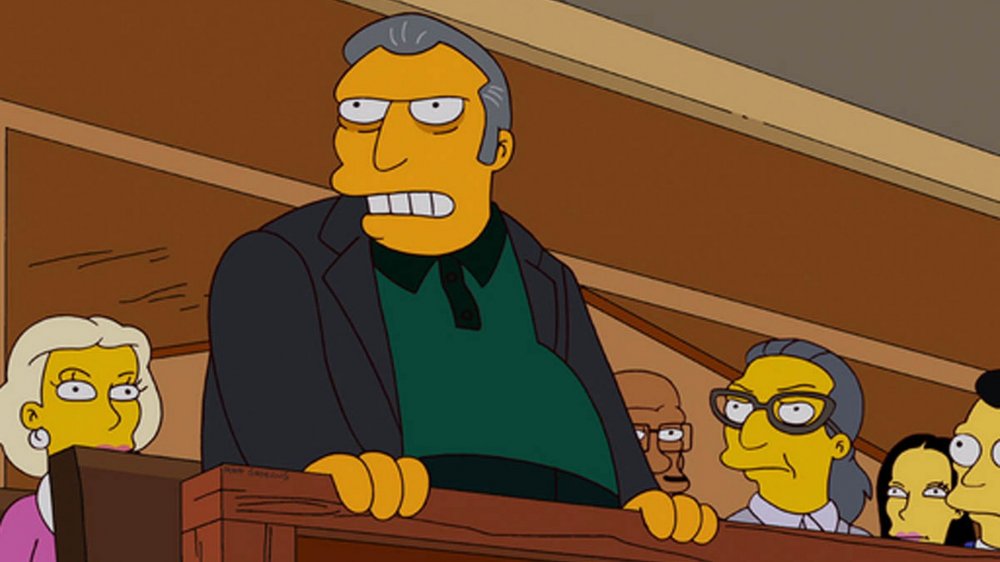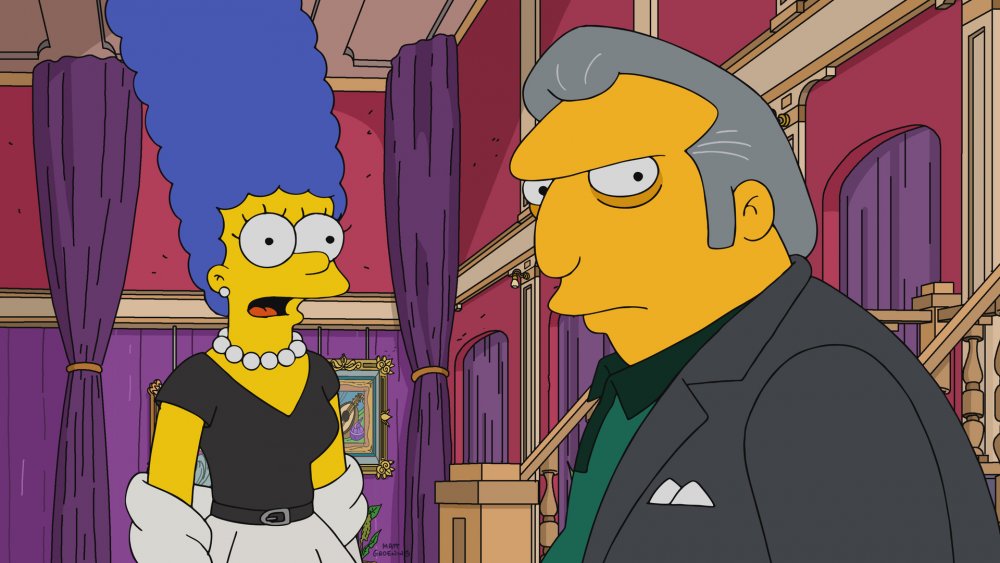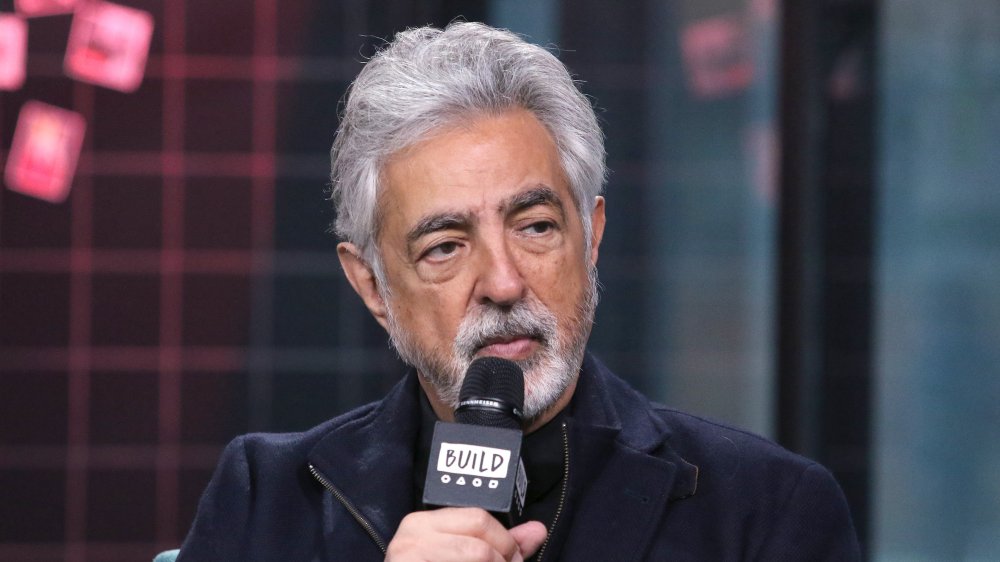Simpsons Actor Reveals The Inspiration Behind Fat Tony - Exclusive
One of the great things about The Simpsons' 30-plus-year run is that it's given the show's creators the chance to explore almost every nook and cranny of Springfield. Characters who might have seemed mere supporting players have had their moment in the spotlight, and voices we might have thought of as fleeting cameos in back in the early '90s have cropped up again and again. It's given the series' entire universe the chance to breathe, and made iconic figures out of personae that could have easily come across as caricature.
Such has been the case with Don Marion Anthony D'Amico, better known as "Fat Tony." Originally appearing in the season 3 episode "Bart the Murderer" as something of a bad influence on the Simpson family's already-wayward son, Fat Tony is set up as Springfield's resident organized crime boss, and the highest-profile denizen of the Legitimate Businessman's Social Club. As the decades have gone on, though, we've come to discover more about the character, including his hidden skills as a violinist and his status as widower of a wife who, according to Fat Tony, was "whacked by natural causes."
Through it all, the voice behind Fat Tony has remained consistent, and it belongs to veteran actor Joe Mantegna. Famously protective of the role, Mantegna has remained a part of the Simpsons-verse for almost three decades. But while Mantegna is well-known for his roles in mob stories like The Godfather: Part III and The Last Don, his inspiration for his Simpsons turn came from a different source. He told Looper all about it when we sat down to reflect with the actor on his tenure as a part of the longest-running show of all time.
For Joe Mantegna, bringing Fat Tony to life was a family affair
Mantegna believes that his casting on The Simpsons came about thanks to his turn in the third installment of the classic Godfather trilogy, which had premiered just the year before. "I don't doubt that it came out of the fact that Godfather III had opened," he asserts. "And I thought, I get it. They created this character, and since I played Joey Zasa — I played the big, mean villain in probably most high-profile part of a trilogy of movies ever made — I get it, why they thought maybe that would be fun for me to play the character. But I thought to myself, I don't want it to be a reboot of Joey Zasa. In other words, I didn't want to create that this character is an offshoot of that character. That would just be a mistake."
So, instead, Mantegna looked to his family for inspiration. "I have a dear uncle, my Uncle Willy, who's my mother's brother," Mantegna says. "My father died when I was only 23 years old, so my Uncle Willy kind of became a surrogate dad for me for the rest of his life, and he lived into his 90s. At this point in his life, he was probably in his early 70s. And he and I were so close that I thought to myself, 'You know what? It might be fun to use Uncle Willy's voice as my voice for this character.' So, when I got to my first lines of Fat Tony and I had to say whatever I had to say in that first episode, I just started talking like him. Nobody said stop, so I just did it, thinking, 'Okay, we'll see...' Anybody who knew me well or knew my family or my relatives, they'd know instantly that I was doing Willy."
Fat Tony takes flight
His job done and his tribute to his uncle paid, Mantegna thought that would be the end of it. The show's producers, however, had other ideas. "After the episode was made and aired, I thought that was it," he recalls. "I thought it would be one-off deal, but they came back to me and said, 'Hey, you know what, we kind of liked the character, would you consider doing it again?' Probably that's when I first said that thing, 'Hey, yeah, if you like the character, I'll do it as often as you want me to do it, because I had a good time.' I started watching the show and thought, 'This is actually really smartly written.' It was smart, and it was more than watching something like a kids' cartoon."
Now, some 29 years later, Mantegna's still happy to be a part of the Simpsons family. "What I like about the whole organization is, it's very true to its roots," he says. "This year, because of COVID, we don't do these group read-throughs like we normally do, but normally you go in, you do a big read-through at a big table. There are guests there, and Matt Groening is right there, and he hasn't changed a bit in the whole amount of time — he's still that guy. And many of the writers and the staff, some of them were kids when the thing started, or fans and became part of the organization. So, they've been true to themselves. They've kept the quality of it up, I feel, and I'm happy to do it. I'm happy to be part of it."


